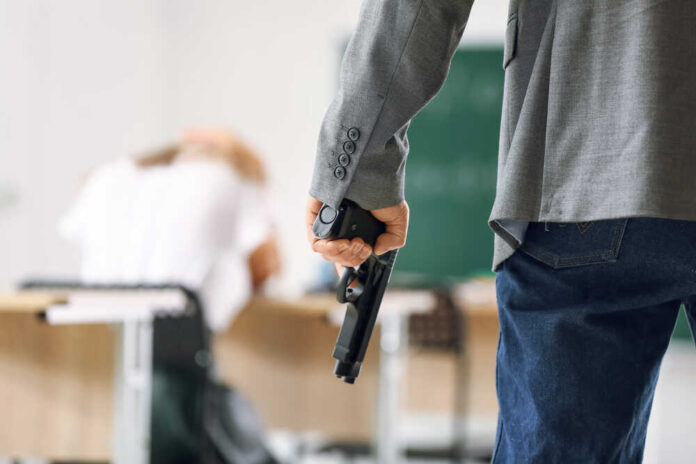Missy Mendo, 14, after escaping the Columbine High School shooting a quarter century ago, slept on the floor between her parents. She wore her sneakers so she could have a quick getaway. She had PTSD.
Over the past 25 years, the tragedy has cast a long and haunting shadow over her and other survivors. The lingering effects of mental health issues have resulted in some survivors experiencing sleeplessness, leaving their education, or becoming disconnected from their partners or loved ones.
Survivors and the community are organizing a candlelight vigil on the steps of the state’s capitol Friday night, marking the eve of the shooting’s anniversary. April is a challenging month for Ms. Mendo, 39, as she relives some of the horrifying memories and her brain shuts down a bit. She finds solace in therapy and the support of a growing community of shooting survivors she has connected with through The Rebels Project.
Researchers have extensively examined the lasting impact of gun violence in schools, measuring the prolonged challenges faced by survivors. These include enduring academic consequences such as increased absenteeism, decreased college enrollment, and diminished earnings in the future. There has been a disturbingly high number of mass killings since the tragic event at Columbine, with nearly 600 attacks resulting in the deaths of four or more people (excluding the perpetrator) since 2006. A firearm was responsible for the deaths of over 80% of the 3,045 victims in those attacks.
Individuals who were present during the tragic events at Columbine have had the opportunity to gain a deeper understanding of their experiences and develop strategies to manage the aftermath. Heather Martin, a senior at Columbine High School in 1999, experienced a distressing incident during a fire drill during her time in college, bringing back memories of the terrifying high school shooting. After being invited back with the rest of the 1999 class for an anniversary event, it took her ten years to see herself as a survivor finally.
Kiki Leyba, a first-year teacher at Columbine in 1999, experienced a diagnosis of post-traumatic stress disorder shortly after the shooting. He had a deep dedication to going back to school but persisted in experiencing panic attacks. In 2005, his wife Kallie signed him up for a one-week trauma treatment program.
Ms. Mendo continues to reside in the vicinity, with her 5-year-old daughter enrolled in a school close to Columbine.
She practices breathing exercises to keep her fears and anxieties at bay- something she has learned from her therapist.


















